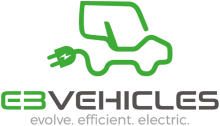In recent years, the shift towards eco-friendly and cost-effective transportation options has led to the rising popularity of street-legal golf carts and low-speed vehicles (LSVs). These compact, electric-powered wonders are not just for the golf course; they are now making their presence felt on city streets and in various communities. One of the significant drivers behind this trend is the potential cost savings when compared to traditional vehicles. In this blog, we’ll dive into the world of cost comparison to understand the financial benefits of choosing golf carts and LSVs over conventional cars.
Fuel Costs:
One of the most striking differences between street-legal golf carts or LSVs and traditional vehicles is the fuel cost. Golf carts are electric and can be charged using standard household outlets. This means you can say goodbye to expensive gasoline fill-ups. Electric vehicles are incredibly energy-efficient, costing only a fraction of what you’d pay for gas. Furthermore, electric power typically comes from more sustainable sources, contributing to a reduced carbon footprint. The cost savings in fuel can be substantial over time, especially if you use your golf cart or LSV for daily commuting.
Insurance Premiums:
Insurance for golf carts and LSVs is generally much more affordable than that for traditional vehicles. Since these vehicles are typically used in low-speed, low-risk environments, insurance companies offer lower premiums. The reduced risk of accidents at low speeds translates into substantial savings on insurance costs. Moreover, many regions have special insurance programs tailored for these types of vehicles, making it even more cost-effective to get coverage for your golf cart or LSV.
Maintenance Expenses:
Another area where golf carts and LSVs shine in terms of cost savings is maintenance. Traditional vehicles come with complex engines, transmissions, and various moving parts that require regular maintenance and costly repairs. In contrast, golf carts have simpler, electric powertrains with fewer components that can break down. Maintenance typically involves tasks like battery care, tire maintenance, and routine inspections. These tasks are less expensive and can be performed with minimal hassle. Over time, these savings can significantly add up, making your choice of a golf cart or LSV even more cost-effective.
Licensing and Registration:
The costs associated with licensing and registering a golf cart or LSV are generally lower compared to traditional vehicles. Many regions have specific regulations and fees designed to accommodate these types of vehicles. This can result in substantial savings, both initially and on an ongoing basis.
Depreciation:
Traditional vehicles tend to depreciate rapidly, which can result in significant financial losses over time. Golf carts and LSVs, on the other hand, typically depreciate at a slower rate, especially if well-maintained. This means that your initial investment retains its value better, offering an added financial benefit.
In summary, the cost comparison between street-legal golf carts or LSVs and traditional vehicles reveals significant financial advantages in terms of lower fuel costs, reduced insurance premiums, minimal maintenance expenses, lower licensing and registration fees, and slower depreciation. If you’re looking to save money on transportation and reduce your carbon footprint, these eco-friendly vehicles are worth serious consideration. The financial benefits, along with their environmental friendliness, make them a compelling choice for budget-conscious and eco-conscious individuals alike.
To see if an electric street legal vehicle is right for you contact E3 Vehicles or chat with a team member today!
(310) 386-3679

